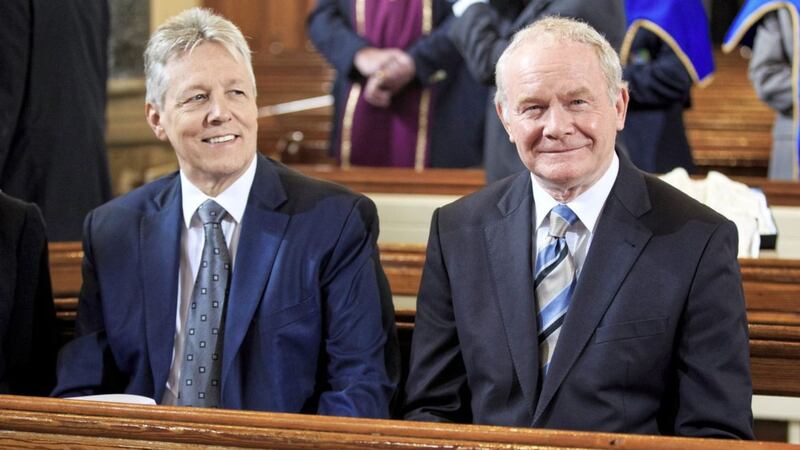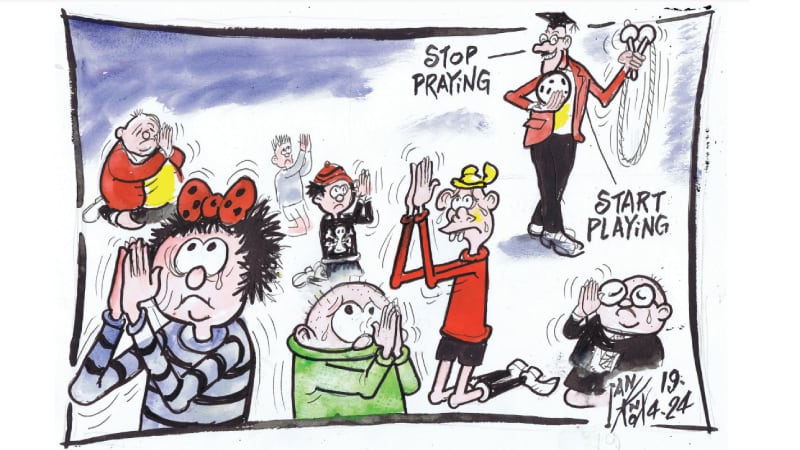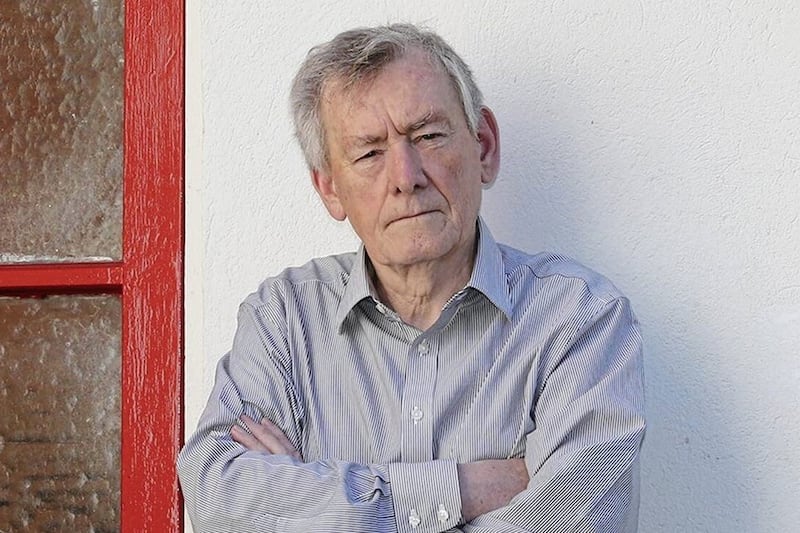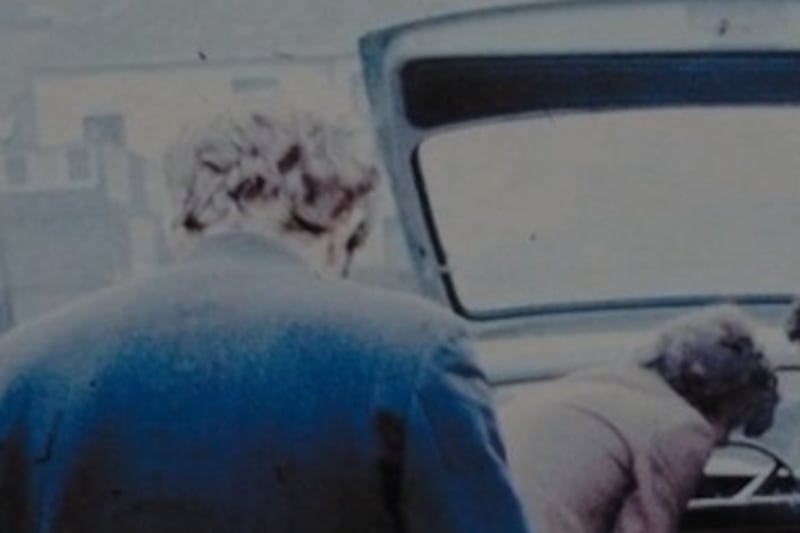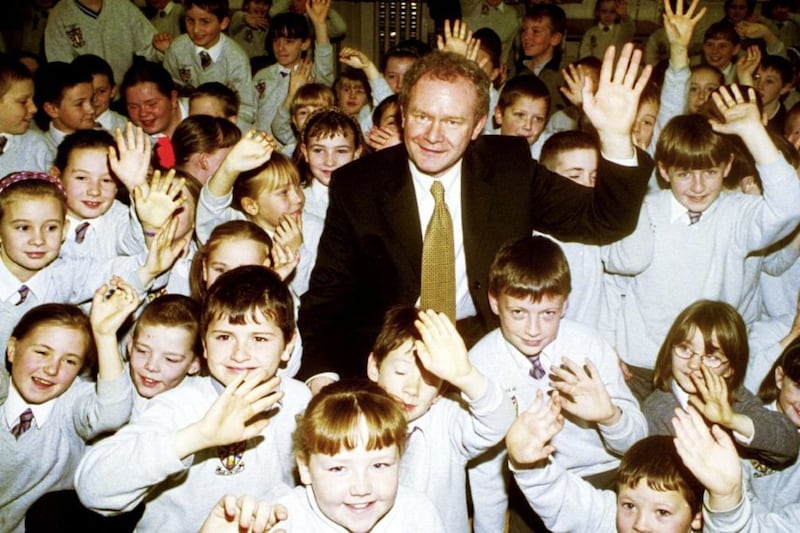MARTIN McGuinness was often personable and charming - preferring to be on first name terms, never standing on ceremony or insisting on formal titles.
He was a family man who enjoyed life's simple pleasures, like fly-fishing or walking his dog Buttons.
There was also a more sinister, ruthless side to the former deputy first minister, as illustrated by the Frank Hegarty case, where the IRA informer received assurances about his safety only to be murdered on his return to Derry.
Martin McGuinness's journey showed the extent to which circumstances can dictate life's path and yet how people can atone for their past actions through positive gestures.
Read More:
- Family pays tender tribute to Martin McGuinness one year on
- Cross-border walk among events marking first anniversary of Martin McGuinness death
- Bertie Ahern: History will be kind to Martin McGuinness
It's argued that it was his record in the Provisional IRA that ensured Martin McGuinness commanded deep respect within the republican movement's ranks and enabled him to do things that his comrades would ordinarily have regarded as treachery.
His republican pedigree helped convince those who believed Irish unity could only be achieved through military means that there was an alternative route worth pursuing.
His credentials also brought weight to his arguments when dealing with governments in Dublin, London and beyond.
While some unionists have doubted nationalists' commitment to making devolution work, that accusation could not be levelled at Martin McGuinness.
Initially in his role as Stormont education minister, then even more so as post-St Andrews deputy first minister, he enthusiastically embraced power-sharing and sought to reach out to his former adversaries in a manner yet to be matched for someone of his background.
He added: “However, you can’t doubt that for some he was and always will be that bete noire of the Troubles. He lived in that dual area.”
Read more:
- Tour guides report huge interest in Martin McGuinness sites
- On his home patch, respect for Martin McGuinness is stronger than ever
- Denis Bradley: McGuinness legacy will always be a mixed one
Over the last year, Mr Bradley has also discussed Mr McGuinness’s legacy with families of Troubles victims.
The former priest said their views reflect the division in attitudes among the wider public.
“There are people who were very hurt by the IRA and would have no sympathy or change of heart over the years. But equally there would be people who would be hurt but who would in some way have that hurt softened by the peace process in which Martin was so prominent,” he said.
The unexpected relationship he forged with Ian Paisley became a symbol of the potential for reconciliation and while there was never the same bonhomie with Peter Robinson, the two leaders often worked in tandem to promote the north's interests.
However, by the end of his time at Stormont, the Sinn Féin figurehead's patience had been exhausted and the public outcry over RHI provided the impetus for crashing the institutions.
In a final round of interviews in January last year, an account of one episode summed up the frustration he felt after a decade of power-sharing.
Mr McGuinness told how DUP leader Arlene Foster had vetoed his proposal that the two Stormont leaders watch Ireland’s two soccer teams at 2016's European Championships in France.
Mrs Foster attended Northern Ireland’s game against Poland, while her Sinn Féin counterpart went to both the Republic’s clash with Italy and Northern Ireland’s match with Germany.
“It’s not like I was asking her to go to a 1916 commemoration,” Mr McGuinness said.
“This was a football match in France and I didn’t think it was too much to expect that we could have been involved in what hopefully would’ve been the beginning of outreach – but it didn’t happen.”
As the curtain came down on devolution, this snub to those in the north whose sporting allegiance is to the Republic was used alongside other incidents to support the argument that there would be 'no return to status quo'.
Where weeks earlier Sinn Féin and the DUP were together pushing the line that "slowly but surely, politics here is changing – and it's for the better", a fresh narrative emerged highlighting unionist intransigence and intolerance.
The decade-long experiment in power-sharing was over, with Martin McGuinness's declining health analogous to the fast deteriorating relations at the heart of the executive.
Republicans are reluctant to admit it but Martin McGuinness's death a year ago left a gaping void in its leadership north of the border.
The imagery from his funeral, with new northern leader Michelle O'Neill and deputy president Mary Lou McDonald carrying the former deputy first minister's coffin, was clearly designed to stress continuity but the loss of such an important and influential figure was difficult to mask.
In the subsequent months there were stop-start efforts to restore devolution, with republicans adopting an Irish language act as emblematic of their desire to see nationalist culture respected by unionists.
In the end, it proved too great a concession for the DUP to grant, even though the evidence suggests the party's negotiators, including Arlene Foster, were willing.
It's a moot point whether the outcome would have been different had Martin McGuinness been in the role of Sinn Féin chief negotiator.
While the former first minister was often happy to paper over the cracks in power-sharing in the interest of moving things forward, republicans had higher expectations from any freshly agreed arrangements.
They felt their willingness to compromise over the previous decade had been viewed by the DUP as a weakness and had not been reciprocated.
Martin McGuinness undoubtedly made a positive contribution to power-sharing - reaching out to unionists, meeting Queen Elizabeth and sticking with the devolution project when often all seemed lost. He led by example and took risks others shied away from.
The DUP-Sinn Féin-led executive was far from perfect and was hyper-sensitive to criticism but it provided a glimpse of what was possible when two opposing sides co-operated for the common good.
Unfortunately, the political vacuum created by Mr McGuinness's absence only underscores how central he was to the peace process and the stability of the institutions.
Without his leadership, Sinn Féin appears to be going through the motions, resorting to repeating mantras when something more nuanced is required.
It's understating things to say Martin McGuinness wasn't universally liked in the north, but his acceptance by a large swathe of unionism was a reflection of his stature and the efforts he made to cement peace.
It may be some time before we see his like again.
